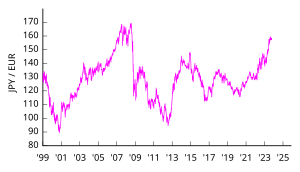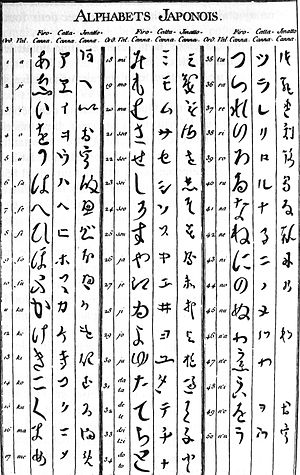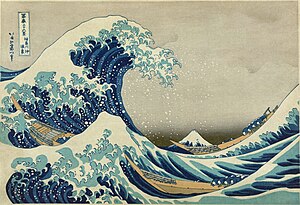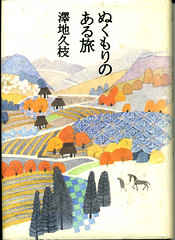12/31/2012
日本語の不思議
こちらは外人だからあれこれが分からないのも特別驚くことないだろう。それでも2-3妙だなと思った事を書いてみよう。
1) ウインド・ブレーカー
昔病院に働いた。その時大体二人は一つの治療室をシェアーした。ある時同じ部屋で仕事した仲間が「俺は買い物に出かけるぞ。ウインド・ブレーカー買いに行く。」と嬉しそうにいった。
私は多分かなり馬鹿な顔したでしょう。えっ・・・ "window breaker" (その用に聞こえた)会に行くの???そのへんの石ころじゃだめなの?
窓を割るには石が最適だと子どもの頃から常識だと信じ、わざわざ買い物まで行く必要ないだろう。カタカナの弊害かこちらの勉強不足。
2) すてっちゃった
同じ頃病棟で仕事をしているうちに今まで面倒を診た患者がある日から部屋にいなかった。担当の先生(その病院の東洋医学研究所を設立した先生)にあの患者の事で尋ねると「あっ・・・ あの人はすてっちゃった。」
捨てる!人を捨てる!!ゴミ箱に???多分下あごがぱかっと空いちゃったでしょう。
だが、更に尋ねるとそれは「捨てる」の事ではない。病棟で「死ぬ」と言う言葉が嫌がられるから、それに相当する患者が分からないドイツ語 = sterben を使って、更にちゃんとした発音何れに出来ないから日本語ぽく、なまった感じで発音すると「すてっちゃう」になる。一種の暗号だ。患者がなくなりましたの事。
3) 病院を治療現場では年中治療者と患者の間に「ムンテラ」を行うそうだ。病院に働き始めた頃一日何十回も聞いたでしょう。それも又先の先生に聞いて見ると「お前はドイツ人だろう。何でわかんないのか」と言われた。
どうやら「ムンテラ」は "Mund" + "Therapie" と言ったドイツ語から出来た。出来たといっても日本人は勝手に作った、ドイツ語には存在しない言葉は"Mund"=口 + "Therapie"=治療で出来ている新語だ。しかし、もしドイツ語だったら「口腔治療」のような意味を持つ。
本当は「説得療法」のことを言いたいんだが・・・
12/28/2012
LINGUIST OF THE HOUR
The other day I happened to look up a job offer on a translator site.
In the right hand panel, apart from commercials etc. the
"LINGUIST OF THE HOUR"
is featured. This is something many sites do.
When I was looking, the linguist of the hour was, judging by the name a (male ->) Chinese or Korean person.
His catch phrase was:
"Quality is the most important."
If that is actually the case, somehow I would like to see correct English. Like:
1) Quality is most important.
2) Quality is the most important thing.
Please correct me, if I am writing something stupid ...
In the right hand panel, apart from commercials etc. the
"LINGUIST OF THE HOUR"
is featured. This is something many sites do.
When I was looking, the linguist of the hour was, judging by the name a (male ->) Chinese or Korean person.
His catch phrase was:
"Quality is the most important."
If that is actually the case, somehow I would like to see correct English. Like:
1) Quality is most important.
2) Quality is the most important thing.
Please correct me, if I am writing something stupid ...
12/27/2012
日本の資料を翻訳する
先日(12/21)に貴社の新聞12ページの論点を読ませていただきました。
日本語のチャントした資料をチャント英訳にし、翻訳者に***適切***な料金を払うべきだと書いてある。ごもっとも!!!
私も翻訳者としても働いて、2003年にある雑誌で私の記事がありました。翻訳者は「本を読む専門家として翻訳すべきものを進める立場にある」と主張しました。実際仕事として翻訳したものの中に日本人が恥じかくものをありましたのに、いいもの何時も保留・・・
http://www.einklang.com/Bookfinder.htm
翻訳するならば・・・ ***外国で***分かるような形でないと意味がありません。実際日本で漢方薬に関するもっとも権威のある学会が「馬鹿な形で翻訳しろ」と言う指示もだしています:
http://transcurio.blogspot.jp/2010/06/translation-of-material-pertaining-to.html
日本語のチャントした資料をチャント英訳にし、翻訳者に***適切***な料金を払うべきだと書いてある。ごもっとも!!!
私も翻訳者としても働いて、2003年にある雑誌で私の記事がありました。翻訳者は「本を読む専門家として翻訳すべきものを進める立場にある」と主張しました。実際仕事として翻訳したものの中に日本人が恥じかくものをありましたのに、いいもの何時も保留・・・
http://www.einklang.com/Bookfinder.htm
翻訳するならば・・・ ***外国で***分かるような形でないと意味がありません。実際日本で漢方薬に関するもっとも権威のある学会が「馬鹿な形で翻訳しろ」と言う指示もだしています:
http://transcurio.blogspot.jp/2010/06/translation-of-material-pertaining-to.html
Gracious!
This is not the first time and definitely will not be the last.
I get translation job nofifications through various translator sites. Wording and conditions are very diverse, but there is ALWAYS a certain portion of job posters assuming a nobleman attitude that I personally find very annoying.
These people/companies are looking for personnell = people who can do some sort of highly specialized work. As such translators are experts - and the translators I know are proud of their skills.
Even though the job poster is ASKING for help, so that a little "please" somewhere might not be such a bad idea, it said in one of the job offers this morning:
"You may send your resume ..."
To me that sounds like: "You may now kiss my feet. And feel honored to be allowed to do so."
If this were coming from a country where people are not (yet) fully accustomed to use English, I would not complain. But this add was posted by an American company. That company is graciously allowing you to send your resume.
Wonderful.
Am I the only one, who thinks, this is a strange attitude???
Related articles
11/14/2012
道路標識
以前から幾分信号機の所に町の標識があったが、最近町中何かの「流行」のように道路標識が現れてきた。それぞれの道路標識に日本語と「横文字」に場所の名前が書いてある。
日本人は当然その日本語を読めるから、横文字分は外国人(観光客?)のためであると想定している。志は外国人がもっと簡単自分の行きたいところが分かるための努力だと信じたい。
しかし、少々問題あり!
例えば:「葉山元町」→ "Hayamamotomachi" となっている。
「葉山元町」は一つの名所でありながら日本人が***当然***「葉山」と「元町」は別々の「言葉」として認識する。
では外国人はどうなるだろう?日本語分からない人ならば "Hayamamotomachi" と言う文字列はどこで切ればいいか、もし辞書で調べたいならば何を探せばいいのか???
Haya mamoto machi?
Hayamamo tomachi?
Ha ya motoma chi? ...
やる様がない!!!
だったら日本人が理解すると同じ形にするのは何がそんなに罪でしょうか:
"Hayama Motomachi"
"Hayama" 固有名詞、探せば地図などで出てくる
"Motomachi" 名詞、通常の辞書で探せば出てくる。
まだ日本語の文字を読めない外国人向け日本語教科書に:
Korewaookiteburudesu.
或いは
Kyowaiiotenkidesukaraosanponidekakemasu.
と書かない筈!!!(上記の「言葉」解読出来るか?
何で日本人は自分の事をなるべく分からないような形にしたがる事が私は理解出来ない。
以前漢方に関して似たような内容も書いた事ある・・・
http://transcurio.blogspot.jp/2010/06/translation-of-material-pertaining-to.html
11/12/2012
Me and you - thats different.
Today a "job offer" was posted on multiple sites:
"This is the first project on a long list of documents to be translated.
It has two parts, 18,000 words in each.
We will accept a flat rate of no more than 400 USD for each part, no more than 800 USD for the entire project.
(-> 400 / 18000 = 0.022 USD/word ; this is my calculation)
Requirements:
1. Must be a native German speaker with excellent writing skills
2. Must be near-native fluent in English and have experience translating philosophical, spiritual, and religious documents.
Please contact me only if you're serious about the job ... Payment will be made through paypal immediately upon delivery.
(From the poster's (Qiangwei Wang) profile:)
Preferred currency: USD
Min. rate per word per hour
Chinese > English 0.12 USD 45.00 USD
English > Chinese 0.10 USD 40.00 USD
German > Chinese 0.15 USD 50.00 USD
German > English 0.15 USD 50.00 USD"
So this person works for 0.12-0.15 USD/word. Understandable.
How come everybody else has to work for 18.5%-14.6% of the payment this person considers appropriate for himself?
Apparently the poster assumes, that other translators work purely for fun (translation of philosophical material is definitely not easy) and don't have to pay the rent or buy food.
This is not "An American in Paris" but rather
"A Chinese in America".
"This is the first project on a long list of documents to be translated.
It has two parts, 18,000 words in each.
We will accept a flat rate of no more than 400 USD for each part, no more than 800 USD for the entire project.
(-> 400 / 18000 = 0.022 USD/word ; this is my calculation)
Requirements:
1. Must be a native German speaker with excellent writing skills
2. Must be near-native fluent in English and have experience translating philosophical, spiritual, and religious documents.
Please contact me only if you're serious about the job ... Payment will be made through paypal immediately upon delivery.
(From the poster's (Qiangwei Wang) profile:)
Preferred currency: USD
Min. rate per word per hour
Chinese > English 0.12 USD 45.00 USD
English > Chinese 0.10 USD 40.00 USD
German > Chinese 0.15 USD 50.00 USD
German > English 0.15 USD 50.00 USD"
So this person works for 0.12-0.15 USD/word. Understandable.
How come everybody else has to work for 18.5%-14.6% of the payment this person considers appropriate for himself?
Apparently the poster assumes, that other translators work purely for fun (translation of philosophical material is definitely not easy) and don't have to pay the rent or buy food.
This is not "An American in Paris" but rather
"A Chinese in America".
Related articles
Labels:
America,
Business,
China,
flate rate,
rate,
translation,
unreasonable
11/02/2012
怒った!!!
 |
| List of titles of works based on Shakespearean phrases (Photo credit: Wikipedia) |
以前一度NHKに何か問い合わせたところでオンラインフォームに「名前を入力」が要求された際アルファベットがまともに受け付けないし、カタカナやひらがなの入力欄では私の名前はまるで受けつけない。
http://blogs.yahoo.co.jp/thoacu/62924327.html (日本語)
私はドイツ人で、名前は Thomas.それをカタカナで書くと「トーマス」となる。
「ト」の後に続く音を伸ばす棒「-」は罪のようなものだ。
受け付けるの「トマス」だけ!!!
Thomas Jefferson (American) の発音はそれでいいだが、私はアメリカ人じゃない。
カタカナの「棒」はそんなに難しいならなんで「コーヒー」と書けるのだろうか???
NHKの返答には「人種差別」のつもりではなく、コンピュータ技術(プログランミング)の問題だそうです。
その後 facebook のアカウントをセットアップした時 → 同じ問題:
https://nyuwa.wordpress.com/2012/10/26/facebook-racial-discrimination/ (英語)
そして機能サンスターと言う大企業に「問い合わせ」を送信した。
(あの会社は全国新聞一面広告を出して、5000万円も払っているのに、二つの英語単語をまともに書けない。中学生問題だ!
https://nyuwa.wordpress.com/2012/11/01/healthy-column/
そこも又同じ問題!
私はもう怒った。問題の原因は何処にある知らないが、
いい加減に仕上がれ!!!
人の名前は何だと思っているのだろうか。
聞くけど:
【人名】〔ローマ皇帝〕ジュリアス・シーザー (Julius Caesar)
がいたら、「お前の名前が気に入らない。「シザ」にしろ!」
と言われた・・・ シーザーにとってプログランマーは=奴隷。
その奴隷は命無いだろう。
ウィリアム・シェークスピア (William Shakespeare) の名前も蹴られている:
「シェクスピア」に変える。
では日本人、仮に「浜松」と言う名前があるとしたら、何処か海外で問い合わせて/書類を書く時「お前はこれから”まつ”だ」と言われたら日本人はどういう反応するか???
それとも、上記の〔ローマ皇帝〕ジュリアス・シーザーに並べて日本の天皇の名前は誰か勝手に変えたりするとどうなる?
日本の右翼の連中は暴動を起こすだろう。
又
「迎賓館」 → 私共のシステムじょうで使えないから:
「下品館」 → にする。音は似ているからいいだろう。
賛同する日本人がいるとしたら手を挙げてください。
11/01/2012
Unbelievable! - Again
 |
| English: Graph showing Euro and Japanese yen exchange rate from January, 1999. 日本語: 1999年1月からのユーロと日本円の為替レートのグラフ。 (Photo credit: Wikipedia) |
"Languages: Japanese to English
i need Japanese to English translation of 3250 Japanese Characters,
i need this urgent , within 10 hours.
Budget and payment details:
Hide / show
$10.00 USD to $10.00 USD total
($0.00 USD to $0.00 USD estimated per char)
Further payment details: 10 $ for 3250 characters
Estimation in your preferred currency (using today's conversion rate):
797.885 JPY to 797.885 JPY total
info Preferred expertise: Law/Patents"
3250 Japanese characters to be translated into English is according to the commonly applied rules here in Japan about 9 pages. Subject matter seems to patent related. In that case is the text everything but easy.
And the offered TOTAL payment is 10 USD.
That is 1.1 USD per page of patent translation from Japanese to English.
Everybody who wants to do it AND can make a living on that rate, please raise your hands.
This is definitely not the first time that sort of offer has been published on Proz.com. See also:
http://transcurio.blogspot.jp/2012/02/unbelievable.html
Healthy Column
先日一度類似の問題に関して英語でブログを書いた:
http://transcurio.blogspot.jp/2012/10/barefoot-coffee.html
http://nyuwa.wordpress.com/2012/10/26/barefoot-coffee/
但し、その時対象は浜辺で小さなコーヒー店を営んでいる普通の叔父さん(想定)であった。
今回全国新聞一面をの広告を出している大企業 = Sunstar です。
新聞一面の広告費用は:
掲載料金小計(段単価×15) 47,910,000円 (読売新聞)だそうです!!!
http://d.hatena.ne.jp/longlow/20120530/p1
http://www.777money.com/torivia/torivia2.htm
5000万円を掛けるならば英単語2つ位はしっかりして貰えないのでしょうか。
広告の内容を読んでいないし、サンスターの製品自分も日頃使っているので、ここは依存ないが、英語は - お言葉ですが - 馬鹿。
Column = 欄、名詞
Healthy = 健康の、元気な、形容詞
形容詞はその後に続く名詞の性質/説明を加える。
「欄がある」→それはどのような欄か → 健康の/元気な欄です。
本当か????????
該当する欄は元気でも健全でも何でもない。
言うならば: Health Column (健康に関する欄)
それ位の事は中学校で習った筈!
この会社を膨大のお金を掛けて広告を出し、関わる人間の少なくとも大半は大学卒業している人と想定します。
しっかりして頂戴よ、日本人!
気をつけないと世界の笑いものになりかねないですよ。
私は - 少なくとも日本の鍼灸に関して - 世界に向けてもう20年前から日本の良さを宣伝しています。このような事があると「裏切られる」気がする・・・
http://transcurio.blogspot.jp/2012/10/barefoot-coffee.html
http://nyuwa.wordpress.com/2012/10/26/barefoot-coffee/
但し、その時対象は浜辺で小さなコーヒー店を営んでいる普通の叔父さん(想定)であった。
今回全国新聞一面をの広告を出している大企業 = Sunstar です。
新聞一面の広告費用は:
掲載料金小計(段単価×15) 47,910,000円 (読売新聞)だそうです!!!
http://d.hatena.ne.jp/longlow/20120530/p1
http://www.777money.com/torivia/torivia2.htm
5000万円を掛けるならば英単語2つ位はしっかりして貰えないのでしょうか。
広告の内容を読んでいないし、サンスターの製品自分も日頃使っているので、ここは依存ないが、英語は - お言葉ですが - 馬鹿。
Column = 欄、名詞
Healthy = 健康の、元気な、形容詞
形容詞はその後に続く名詞の性質/説明を加える。
「欄がある」→それはどのような欄か → 健康の/元気な欄です。
本当か????????
該当する欄は元気でも健全でも何でもない。
言うならば: Health Column (健康に関する欄)
それ位の事は中学校で習った筈!
この会社を膨大のお金を掛けて広告を出し、関わる人間の少なくとも大半は大学卒業している人と想定します。
しっかりして頂戴よ、日本人!
気をつけないと世界の笑いものになりかねないですよ。
私は - 少なくとも日本の鍼灸に関して - 世界に向けてもう20年前から日本の良さを宣伝しています。このような事があると「裏切られる」気がする・・・
Related articles
10/28/2012
China - "cheap is best" ...
 |
| English: Rolex Oyster Perpetual Sea-Dweller DEEPSEA (Ref. 116660) (Photo credit: Wikipedia) |
"Do you have time to help me proofreading the job?
Our client is not satisfied with the translator's quality, and unfortunately, the translator is not responding on the feedback since last night, we are facing to lose this client now."
Well, there is really not much to say.
First of all the original client is at fault, because they were looking for translations that are above everything else CHEAP. And China provides that kind of service.
And the translation agency is at fault, because they were using a translator (I got the impression from the text they sent me, that this person is first of all NOT a native German), who agrees to provide CHEAP (= this is usually called "reasonably priced", "best rate", or something like that) work.
Is it then any wonder, when the client (apparently requiring some official documents for the export of cars) complains, that the quality of the translation is not the "Ferrari" or "Rolex" quality they have been expecting?
I really do not understand these people.
If you buy cheap products, you get cheap quality.
It is part of the deal.
And it applies to ALL fields of business.
(you cannot buy a real Rolex watch for 59 USD ...)
10/26/2012
barefoot coffee
During lunch break I frequently ride my bicycle along the coast for exercise.
On one of my "standard routes" I always pass a sort of "container" near the beach that has been set up as a coffee shop.
Fine so far.
But its sign says, the place is called "barefoot coffee".
"Barefoot" - since this thing is only 50 m from the beach, this probably alludes to the possibility to come over and walk in with sandy feet, possibly barefoot (which is not necessary welcome in restaurants).
However, the way the name is written "barefoot" becomes a modifier for coffee, like for example in "outdoor exercise".
Well, if that is so, then the coffee comes walking in barefoot?
A rather unusual idea.
Probably the people wanted to express
1) "barefoot cafe
or
2) "barefoot coffee shop"
This is again a manifestation of the annoying laziness of the Japanese people to look up one or two terms in a dictionary.
It may sometimes reach literally "unbelievable proportions".
see:
http://transcurio.blogspot.jp/2012/01/fuckin-sale.html
On one of my "standard routes" I always pass a sort of "container" near the beach that has been set up as a coffee shop.
Fine so far.
But its sign says, the place is called "barefoot coffee".
"Barefoot" - since this thing is only 50 m from the beach, this probably alludes to the possibility to come over and walk in with sandy feet, possibly barefoot (which is not necessary welcome in restaurants).
However, the way the name is written "barefoot" becomes a modifier for coffee, like for example in "outdoor exercise".
Well, if that is so, then the coffee comes walking in barefoot?
A rather unusual idea.
Probably the people wanted to express
1) "barefoot cafe
or
2) "barefoot coffee shop"
This is again a manifestation of the annoying laziness of the Japanese people to look up one or two terms in a dictionary.
It may sometimes reach literally "unbelievable proportions".
see:
http://transcurio.blogspot.jp/2012/01/fuckin-sale.html
Facebook - insanity continues
I posted before about the insanity of facebook requiring me to use BOTH my real AND a false name.
This continues!
There is a field where I am supposed to enter my (in this case my clinic's) address. It has been 18 years since I opened this little acupuncture clinic of my own. You can find me at this address in any which way you choose. Google aerial pictures show the house.
BUT ... behold: facebook tells me: "Oh no, there is no such place"
Isn't that wonderful!
I tried to find out what's going on, "googled" around and found that other people have the same issue, tried to enter my address in ***ANY*** possible way. There are two fields for it, so you can distribute the portions of your address on these fields differently.
But NO!!! combination works.
Again - being required to be a real person to start with, but at the same time sent into the underworld and declared a ghost.
Could anybody tell me what exactly the purpose / advantage of this "virtual reality strategy" is???
I am only an ordinary mortal man and therefore this logic (?) is way beyond me.
This continues!
There is a field where I am supposed to enter my (in this case my clinic's) address. It has been 18 years since I opened this little acupuncture clinic of my own. You can find me at this address in any which way you choose. Google aerial pictures show the house.
BUT ... behold: facebook tells me: "Oh no, there is no such place"
Isn't that wonderful!
I tried to find out what's going on, "googled" around and found that other people have the same issue, tried to enter my address in ***ANY*** possible way. There are two fields for it, so you can distribute the portions of your address on these fields differently.
But NO!!! combination works.
Again - being required to be a real person to start with, but at the same time sent into the underworld and declared a ghost.
Could anybody tell me what exactly the purpose / advantage of this "virtual reality strategy" is???
I am only an ordinary mortal man and therefore this logic (?) is way beyond me.
Facebook - racial discrimination?
 |
| English: Table of katakana characters, and the kanji from which they derive. Français : Évolution des katakana à partir des kanji. Русский: Таблица символов катаканы (слева) и исходные иероглифы, из которых они развились (справа). (Photo credit: Wikipedia) |
 |
| English: Japanese "alphabets" in Diderot Encyclopedia (18th century) -- actually syllabaries, (Photo credit: Wikipedia) |
To understand the following, I have to explain a a little something about Japanese.
The Japanese language uses basically 4 different character sets:
* Chinese characters
* Japanese alphabet for native terms (called hiragana)
* Japanese alphabet for foreign terms (called katakana)
* roman alphabet
Facebook requires everyone to provide his/her REAL name. That is my case (I am a German) naturally written in roman alphabet.
However, facebook also asks, whether you (anybody) would like to display this name also in a different language. For me here this would be Japanese.
For me that would be Thomas (first name)
-> rendered in katakana 「トーマス」
Here the syllable for "tho" is extended to match the pronounciation.
BUT ... and I had the same problem before with NHK = the national TV station - facebook tells me: oh no, there is no name that would be pronounced "thomas" (with a prolonged "tho" instead of the short form used in English).
I ***MUST*** use a rendition of my name that simply is NOT(!!!) my name.
The same applies to my family name.
So, what is it with these facebook idiots.
On the one hand they demand that I provide my real name,
but on the other hand they force me to use a fake name.
That is, what it comes to: a false name! NO (!!!) official document related somehow to me would be recognized/accepted with the forced (Japanese) spelling.
How stupid!
Related articles
10/23/2012
Facebook も人種差別している
Facebook も人種差別している。今日は子どもに進められて Facebook のアカウントをセットアップした。
だが、先日NHKで「問い合わせる」際に発生した同じ問題ここに出た!!!
私の名前(本来アルファベットですが、Facebook account setting の所で「日本語名を入力」場所ある/薦められる)の「正しい」カタカタ =トーマス ブラーゼイェーヴィッツ を入力すると:
「あなたの日本語名の変更は、弊社の自動承認システムによって却下されました。」
と出てくる。
唯一認められる「カタカナ」は:
「ブラゼイェヴィッツトマス」
つまり:伸ばす「ぼう」なし
http://blogs.yahoo.co.jp/thoacu/62924327.html
NHKに「それはどういうつもりか。外人を付き合わない事を表現しているか」と言う内容でNHKで問い合わせた所で、NHK から次の返事(抜粋)が来た:
「ご指摘の趣旨がわかりかねますが、ご記入いただいた文字列は、
実際のお名前と異なるのでしょうか。
こちらのメールシステムに特定の対象を拒否するような設定はありません。
ただし絵文字、特殊記号など使用されると文字化けすることがあります。」
しかし:「カタカナ」で入力せよと要求されたら、自分の名前の正しいカタカナ表記:トーマス ブラーゼイェーヴィッツが受け付けない。
「「のばし」やスペース」などは受け付けない!だが「トマスブラゼイェヴィッツ」と言うのは私の名前ではない!
コンピュータ技術が発達した今の時代ではこれが少なくとも失礼だと思います。
それでは
スーパー
ペーパー
マーカー
コピー
コーヒー
等も皆「間違ったカタカナ表記」なのか??????????????????
日本人なら例えば「佐藤」は「サトウ」とかけるが、Baker, Tayler etc. の横文字の名前はどうしても伸ばすカタカナの棒が必要。
結局 Facebook 多数の人間/人種等を相手にするはずですが、その人達の名前を日本語風に表現する事を***差別***している。
How wonderful!
だが、先日NHKで「問い合わせる」際に発生した同じ問題ここに出た!!!
私の名前(本来アルファベットですが、Facebook account setting の所で「日本語名を入力」場所ある/薦められる)の「正しい」カタカタ =トーマス ブラーゼイェーヴィッツ を入力すると:
「あなたの日本語名の変更は、弊社の自動承認システムによって却下されました。」
と出てくる。
唯一認められる「カタカナ」は:
「ブラゼイェヴィッツトマス」
つまり:伸ばす「ぼう」なし
http://blogs.yahoo.co.jp/thoacu/62924327.html
NHKに「それはどういうつもりか。外人を付き合わない事を表現しているか」と言う内容でNHKで問い合わせた所で、NHK から次の返事(抜粋)が来た:
「ご指摘の趣旨がわかりかねますが、ご記入いただいた文字列は、
実際のお名前と異なるのでしょうか。
こちらのメールシステムに特定の対象を拒否するような設定はありません。
ただし絵文字、特殊記号など使用されると文字化けすることがあります。」
しかし:「カタカナ」で入力せよと要求されたら、自分の名前の正しいカタカナ表記:トーマス ブラーゼイェーヴィッツが受け付けない。
「「のばし」やスペース」などは受け付けない!だが「トマスブラゼイェヴィッツ」と言うのは私の名前ではない!
コンピュータ技術が発達した今の時代ではこれが少なくとも失礼だと思います。
それでは
スーパー
ペーパー
マーカー
コピー
コーヒー
等も皆「間違ったカタカナ表記」なのか??????????????????
日本人なら例えば「佐藤」は「サトウ」とかけるが、Baker, Tayler etc. の横文字の名前はどうしても伸ばすカタカナの棒が必要。
結局 Facebook 多数の人間/人種等を相手にするはずですが、その人達の名前を日本語風に表現する事を***差別***している。
How wonderful!
10/15/2012
心のバランス
「心のバランスはサプリで癒せます」
先日あるDMを貰った。何かのサプリメントを売りたいものだった。凄く豪華なプリントで。それはそれで結構です。
しかし、私にとって何より先先ず日本語に違和感を覚えた。
「・・・バランスは癒せます・・・」とは可笑しい。
バランスは「連れ合い、方程式の左右が同じ事、収支など。何かの左右に多いか少ないかは「癒せないはず」
癒せるのは心や人など。
だが、編集者などの人を聞いても「この類のキャッチコピーは皆可笑しい。まともな日本語を求めるのは無理だ。」
まっ、NHKのアナウンサーでさえ番組に「でれれる」のは「全然いい」と思う人がいる時代ですので、煩い外人がまともの日本語を求めるのは矢張り世間知らずの馬鹿者だらう。
先日あるDMを貰った。何かのサプリメントを売りたいものだった。凄く豪華なプリントで。それはそれで結構です。
しかし、私にとって何より先先ず日本語に違和感を覚えた。
「・・・バランスは癒せます・・・」とは可笑しい。
バランスは「連れ合い、方程式の左右が同じ事、収支など。何かの左右に多いか少ないかは「癒せないはず」
癒せるのは心や人など。
だが、編集者などの人を聞いても「この類のキャッチコピーは皆可笑しい。まともな日本語を求めるのは無理だ。」
まっ、NHKのアナウンサーでさえ番組に「でれれる」のは「全然いい」と思う人がいる時代ですので、煩い外人がまともの日本語を求めるのは矢張り世間知らずの馬鹿者だらう。
Translator as "Bookfinder"
 |
| English: Štefan Konzul, croatian translator. (Photo credit: Wikipedia) |
Translator as "Bookfinder"
(This article has been published in Japanese in the March 2003 issue of "e-Trans" and posted as a "contribution" at "www.gotranslators.com")
Not to far in the past there was time, when the military used scouts,
sometimes also called "pathfinders" (Merriam Webster:
path.find.er n (1840): one that discovers a way; esp: one that explores
untraversed regions to mark out a new route -- path.find.ing n or adj.),
to find their way through unknown country. Literally, these were people that
could find a path not visible to anybody else. During a recent conference on
translation, a certain question appeared in several different sessions: what
actually is the job and/or function of a translator?
The answer to this question appears on first sight very simple and
obvious, but many of the attending translators and agencies presented widely
varying definitions and concepts. This motivated me to write this little article
and express an idea, I did have for quite a while now, but that so far failed to
find any resonance. I.e., translators should also (or maybe predominantly) be
"bookfinders" in analogy to the above mentioned pathfinders. Below I
will try to explain why.
I have been a translator for about 18 years and during this time spent
nearly 100% of my time with activities, involving rendition of a certain meaning
in one language into another. At times, in particular when the source text is of
rather poor quality and/or ambiguous, this also involves a more less significant
portion of re-writing or copy writing. Nevertheless, the basic idea is always
the same: change A into B. In my memory very few, if any, people I happened to
work with have ever questioned or even challenged this view. This is simply the
job and function of a translator.
Yet, if you are a translator in any specialized field, show a
professional interest in extending your horizons, or conduct a little research
in your own or other fields of expertise, then you will certainly do some
reading.
This puts the translator in a unique position. He or she is not only
capable of professionally handle and evaluate two or more languages, but will be
reading reference books on certain topics in these languages. Sometimes there
are equivalents or even translations of certain valuable references, but most
often not. Under these circumstances the translator is put in a position where
he or she can evaluate several books that might be worth translating from both a
linguistic and a technical point of view.
I believe that a look at the currently available selection of translated
books shows clearly, that the choices are certainly not always professional.
They are made by publishers based on information and recommendations of not
always certain origin. This provides the general population with a selection of
translated books influenced by a possibly one-sided and - naturally - profit
orientated choice made by the publishers. But this could also mean, that the
average man has access only to a distorted view of the world.
Today, the internet provides the so-called information highway, which
offers users so much information with an incredibly short turnover time that
nobody can ever handle. Yet, fast access to a terrifying amount of information
could also block the view for the more distinct, practical, comprehensive and
interesting information a book can provide. After all, reading should also be
fun.
Often access to the information highway is highly appreciated, but who
would like to live in a house with the front door opening right onto the
highway? I would prefer a little distance from it and like the quiet small back
roads. This is, where books come in. It takes much longer to publish a book than
to publish and then update a web site. Naturally this means, that books are
always somewhat "behind their time", but that does not reduce their
value.
For example, I am a native German living in Japan. I know of literally
"uncountable" translations of German literature, science etc.
available in Japanese bookstores. Yet, conversely, whenever I visit Germany and
look through large bookstores, I can find at best a handful translations of
Japanese books. A very illustrative little episode happened, when I visited the
annual Tokyo International Book Fair a few years ago. There I asked a German
publisher if they might be interested in the publication of translated Japanese
books. The representative at that booth said: "No, why? Publisher XXX
already has published two books." Of course, this is hardly any kind of
representation of a nation that publishes several tens of thousands of new books
every year!
Thus, in spite of the information highway and Japan being an economic
superpower with a major impact on the entire world, it still remains largely
uncharted territory (a sort of a black hole), because there is so little real
information about it available.
Now, here is a field, in which the translator can offer a real
contribution to international understanding: by selecting and recommending books
worth of translation. The translator who recommends certain books might even do
the entire translation. In many cases this would be not only be good for the
translator, but also the translation itself and the final reader.
Related articles
Labels:
Business,
chance,
Germany,
inaccessible,
information,
Japan,
Japanese books,
Merriam Webster,
Publishing,
Reference work,
Tokyo,
translation
Information - Japan
 |
| The Great Wave off Kanagawa (Photo credit: Wikipedia) |
Japan imports and domestically spreads a wealth of information from all over the world. Every small town bookstore is filled with Japanese translations of valuable foreign literature.
Yet, "ALIENS", as foreigners are called in Japan, in their own countries usually have very little if any information about Japan. In (large) bookstores I recently visited in Germany I probably could have counted German translations of Japanese books with one hand! And those books, materials acutally present did not really appear to me as representative and informative examples of Japanese culture and concepts.
As an ACUPUNCTURIST I am probably best able to judge the situation in relation to my special field, oriental medicine. Some of the available translations rather bring shame on the more than 1000-year long tradition of oriental medicine in Japan.
I really wonder why in the face of the booming popularity of so-called "alternative therapies" so few of the many GOOD books (here I speak for Japan and Japanese books) are translated.
Recently I participated in a national conference on acupuncture in Japan. A guest speaker representing the NIH held a lecture detailing the establishment of guidelines regarding research into and application of acupuncture in the United States. This lecture revealed, that the incentive to start studies of acupuncture are already more than 20 years old. Yet, the consensus conference supposed to provide the relevant answers for the issues at hand could not reach any conclusions until the mid-ninties, because there were "too few data/usable research". The persons in charge had been looking in China and throughout the world - except in Japan. Here the kind of research had been conducted since the mid-sixties.
 Thus, because other countries are not really
looking, and Japan itself not actively providing
this information, Japan has been and apparently
still is
Thus, because other countries are not really
looking, and Japan itself not actively providing
this information, Japan has been and apparently
still is a sort of "undiscovered island"
along the so-called information highway!
If publishers should be interested in providing such materials, I would be glad to offer my services. Maybe this would also help a large portion of the world population to get finally access to a large body of valuable information on Japan.
Labels:
Acupuncture,
Asia,
Culture of Japan,
Japan,
Japanese books
9/15/2012
"Speed translation"
This came in the other day on 23:30 Japan time. The company is located in New York and I would have to check the time difference:
"I have a potentially crazy question to ask you...would you be able to turn around 2 Japanese patent applications, one of 4597 words and the other of 2255 words, by 7:45AM tomorrow? More feasibly, would you be able to turn around at least the larger patent application by 7:45AM tomorrow?"
My first response:
Good morning (3 am!) from Japan
Thank you for your job offer, but ...
with all due respect - the requested due date is very unrealistic!
Having a short look showed approximately 23 + 12 pages of translation.
Together that would be 35 pages of PATENT SPECIFICATION, which is a lot more difficult than ordinary text.
In a few hours???
Maybe even asking for a discount rate?
I am not capable of working that fast (being busy with other work anyway).
I would like to meet the person who actually CAN do that.
Even if somebody says s/he CAN produce that much patent translation in such a short time ... I would not trust that person/translation.
Please ask ANYBODY working in ANY patent office about the feasibility, and more importantly the trustworthiness of the produced translation.
Sorry, but I cannot help you, even if I wanted to.
And my professional pride demands that I DO NOT accept work, when I cannot take responsibility for the results.
When the other party agreed, I added a little metaphor:
No problem and no harm done.
It is simply amazing how little the people who are asking for this kind of work actually KNOW about what is involved in translation -- or else CARE about it.
To put it in a little (distorted, sorry) perspective:
Let's say someone asks a construction firm to something like the Empire State Building - in two weeks with a budget of 8.75 USD.
I can see the exhilarated president of the construction company ...
And naturally everybody would agree that this absolutely normal ....
*************************
One of my grandfather's favorite sayings was“Use the right tool for the job”
―common-sense advice that applies to a wide range of situations.
Unfortunately, as Mark Twain observed, common sense isn't very common!
"I have a potentially crazy question to ask you...would you be able to turn around 2 Japanese patent applications, one of 4597 words and the other of 2255 words, by 7:45AM tomorrow? More feasibly, would you be able to turn around at least the larger patent application by 7:45AM tomorrow?"
My first response:
Good morning (3 am!) from Japan
Thank you for your job offer, but ...
with all due respect - the requested due date is very unrealistic!
Having a short look showed approximately 23 + 12 pages of translation.
Together that would be 35 pages of PATENT SPECIFICATION, which is a lot more difficult than ordinary text.
In a few hours???
Maybe even asking for a discount rate?
I am not capable of working that fast (being busy with other work anyway).
I would like to meet the person who actually CAN do that.
Even if somebody says s/he CAN produce that much patent translation in such a short time ... I would not trust that person/translation.
Please ask ANYBODY working in ANY patent office about the feasibility, and more importantly the trustworthiness of the produced translation.
Sorry, but I cannot help you, even if I wanted to.
And my professional pride demands that I DO NOT accept work, when I cannot take responsibility for the results.
When the other party agreed, I added a little metaphor:
No problem and no harm done.
It is simply amazing how little the people who are asking for this kind of work actually KNOW about what is involved in translation -- or else CARE about it.
To put it in a little (distorted, sorry) perspective:
Let's say someone asks a construction firm to something like the Empire State Building - in two weeks with a budget of 8.75 USD.
I can see the exhilarated president of the construction company ...
And naturally everybody would agree that this absolutely normal ....
*************************
One of my grandfather's favorite sayings was“Use the right tool for the job”
―common-sense advice that applies to a wide range of situations.
Unfortunately, as Mark Twain observed, common sense isn't very common!
Labels:
care,
English language,
German language,
Patent,
speed,
translation,
unreasonable,
作業、内容、適性
Relevant information
Today on a translator site a job posting read:
"One of our client is having requirement for technical English to German Translation.
Domain: Technical.
File Type: Word (pdf converted)
Words around 1500
Please mention your best rates for this job."
Its technical. OK.
What kind of "technical"? Subject matter?
No indication at all.
How are you then supposed to provide your "best rates" (meaning "peanuts"!) for this job.
If you ask a construction firm:
"Let's build something. Give me a price."
What kind of answer would you expect???
"One of our client is having requirement for technical English to German Translation.
Domain: Technical.
File Type: Word (pdf converted)
Words around 1500
Please mention your best rates for this job."
Its technical. OK.
What kind of "technical"? Subject matter?
No indication at all.
How are you then supposed to provide your "best rates" (meaning "peanuts"!) for this job.
If you ask a construction firm:
"Let's build something. Give me a price."
What kind of answer would you expect???
Attention ... Scam
Good evening
The other day I got a phone call and was asked to do a Japanese-German translation (patent specification).
Stupid as I am I did that over the weekend and finished it ahead of time.
Yet, after I delivered the translation there is no more response from that "company".
Faxing (address says France) etc. shows that there is no such place/phone/person.
Naturally, I am not getting paid at all.
BEWARE of:
International Patent-Translation Bureau (IPTB)
Italian - Spanish - Portuguese - German - French - English - Russian -- Chinese - Japanese - etc.
100 rue Royale
F 78000 Versailles
Tel: 00 33 9 51 40 92 36
Fax 00 33 9 56 40 92 36
The other day I got a phone call and was asked to do a Japanese-German translation (patent specification).
Stupid as I am I did that over the weekend and finished it ahead of time.
Yet, after I delivered the translation there is no more response from that "company".
Faxing (address says France) etc. shows that there is no such place/phone/person.
Naturally, I am not getting paid at all.
BEWARE of:
International Patent-Translation Bureau (IPTB)
Italian - Spanish - Portuguese - German - French - English - Russian -- Chinese - Japanese - etc.
100 rue Royale
F 78000 Versailles
Tel: 00 33 9 51 40 92 36
Fax 00 33 9 56 40 92 36
Dipl. Ing. W. LOPO
bppui1@aol.com
This is a scammer = criminal
8/29/2012
Perfect ...
On one of the many translator sites at which I am registered a job offer was posted.
It said there:
"We need someone who will translate, proofread, and edit all of your work into ... or from ... into English. Everything must be perfect every time. If you can provide a favorable rate, we can try to give a high volume of work."
This came from an American company.
Don't they say in ENGLISH (!): "Nobody is perfect" ???
And, naturally, the "favorable rate" most likely means "peanuts" ...
So, who of the superhuman translator heroes out there wants to work for peanuts?
Please raise your hands.
It said there:
"We need someone who will translate, proofread, and edit all of your work into ... or from ... into English. Everything must be perfect every time. If you can provide a favorable rate, we can try to give a high volume of work."
This came from an American company.
Don't they say in ENGLISH (!): "Nobody is perfect" ???
And, naturally, the "favorable rate" most likely means "peanuts" ...
So, who of the superhuman translator heroes out there wants to work for peanuts?
Please raise your hands.
Labels:
English language,
labor,
Linguistics,
perfect,
translation,
United States
8/06/2012
Unpaid repetitions .....
This morning there was a job offer on one of those translator sites.
It says there:
"There are 2866 words of which 1526 unpaid repetitions."
Yet, I suppose, those "unpaid repetitions" will need to be worked into some sort of file or delt otherwise with in a fashion, that requires human time and effort. Then "unpaid repetitions" means "unpaid work".
Naturally, the job offer continues:
"Payment is made within 60 days via Bank transfer for EU accounts or Paypal for non EU accounts (company located in France).
Please note we do not pay Paypal fees."
It takes half an eternity to get paid AND the translator has to bear all the burden of transfer fees.
Funny, if I as a customer order something over the net etc. *** I = the customer *** have to pay postage, handling and bank fees. Naturally.
So, why for heavens sake do I as a service provider have to cover all those expenses for the client; who is not even my direct client ?????
It says there:
"There are 2866 words of which 1526 unpaid repetitions."
Yet, I suppose, those "unpaid repetitions" will need to be worked into some sort of file or delt otherwise with in a fashion, that requires human time and effort. Then "unpaid repetitions" means "unpaid work".
Naturally, the job offer continues:
"Payment is made within 60 days via Bank transfer for EU accounts or Paypal for non EU accounts (company located in France).
Please note we do not pay Paypal fees."
It takes half an eternity to get paid AND the translator has to bear all the burden of transfer fees.
Funny, if I as a customer order something over the net etc. *** I = the customer *** have to pay postage, handling and bank fees. Naturally.
So, why for heavens sake do I as a service provider have to cover all those expenses for the client; who is not even my direct client ?????
Related articles
Labels:
bank fees,
European Union,
exploitation,
France,
Payment,
PayPal
Rate? --- No problem!
 |
| Patent drawing of flight simulator by Rougerie (France - 1928) (Photo credit: Wikipedia) |
 |
| Japanese Language Book (Photo credit: born1945) |
The other day I was asked, whether I can translate FOUR related patent specifications, 2 from Japanese and 2 from English, into German. The Italian company (CAESAR SRL) wrote in its mail:
"We evaluated this job as:
- 5055 words from English / - 4000 words from Japanese
approx. qty: 9055 words / fixed price: € 780,00 --> 0.086 Euro/Word"
0.08 Euro/word for a patent specification from Japanese to German???
A few days after I reclined the offer, I got a mail from "wagner-international", asking me, whether I can do PRECISELY the same job (J-G portion only).
That made me celebrate. WONDERFUL!!!
Apparently nobody else is working for so low rates (for material of this complexity). And I told Wagner so.
That company says of itself: "We specialize in cost–effective, expert communication and media solutions ..."
Meaning: we squeeze every last drop of sweat and tear out of the translator to provide clients with CHEAP (the magic word of our time) product.
If it kills a few (thousand) translators ... well, that is their problem.
On the other hand ...
I got an inquiry --- by telephone! --- about a patent translation from France.
Once I had a look at the text, got a better readable PDF file here in Japan and told them my rate (the due date was fixed up front), the person at the other end of the line said: Rate? -- No problem!
That was not a translation agency, it was a patent office:
International Patent-Translation Bureau (IPTB)
On the one hand you have the agencies (sounds like "agent" from the movie "Matrix") that try to cheat and possibly kill translators,
and on the other hand you have companies knowing that some things simply have their price.
Opting for "cheapest is best" will run people/companies into trouble sooner or later. I have seen it many times ... those companies for which I was too expensive receive claims from their customers and then ask me (or anybody else) to have a look at the tranlation and "brush it up a little" ...
Oh, how stupid!
Related articles
Labels:
cheap,
cheating,
exploitation,
Japan,
Japanese language,
labor,
Patent,
quality,
Rates,
translation
7/28/2012
It's HOT ... too hot for the equipment ...
 |
| Weather (Photo credit: Jen SFO-BCN) |
Personally I ride my bicycle for excercise even in this weather.
However, when I cam home last night and wanted to continue my translation work, the monitor shortly lit up and then simply faded out. By that time temperature was already down to I guess 29 to 30 degrees.
So I had no choice and used my note PC to do some work and came to the conclusion, that the monitor has finally reached its life span.
However, I also noticed, that TWO digital clockes showed missing digits in their display.
This morning I tried (with little hope) and switched my monitor on --- and it worked.
Apparently the weather was too hot for my equipment!
The monitor yesterday had suffered a heat stroke.
I also noticed, that the ventilation fan of my computer seems to be working VERY hard.
I have to finish one translation today.
It seems I have no choice to turn on the air conditioning to keep my equipment online. And that in the face of the current insufficient electricity supply.
Related articles
Labels:
digital device,
failure,
Heat illness,
heat stroke,
Japan,
monitor,
PC,
Temperature,
Weather
7/20/2012
日本人のアイデンティティ - それとも分裂症?
 |
| English: The Japanese table, written by Hiragana, Katakana and Romanization of Japanese. 平仮名(ひらがな, Hiragana)、片仮名(カタカナ, Katakana)、ローマ字(ろーまじ, Rōmaji)の日本語一覧表。 This version fixes the katakana for i (イ). (Photo credit: Wikipedia) |
 |
| English: Mangetsuji in Otsu, Shiga prefecture, Japan. 日本語: 満月寺の浮御堂, 滋賀県大津市 Camera: Sony NEX-5 Lens: Sony SEL1855 (Photo credit: Wikipedia) |
 |
| English: Todaiji in Nara, Nara prefecture, Japan 日本語: 東大寺 金堂, 奈良県奈良市 (Photo credit: Wikipedia) |
 |
| NASA Satellite Image of Japan Captured March 11, 2011 (Photo credit: NASA Goddard Photo and Video) |
その背景の前で外から余り邪魔されない、じっくり大変古い伝統が育まれてきた。例えその元は日本のものではないにしても - ここ私は職としている鍼を挙げられる - 数百年から千数百年の間極めて特殊の技術、考え方などが発達して来た。大和心 →
まと‐ごころ【大和心】(1)「やまとだましい」1に同じ。大鏡道隆「大弐殿、弓矢の本末(もとすえ)も知り給はねば、いかがとおぼしけれど、―かしこくおはする人にて」 ⇔漢心(からごころ)。(2)日本人の持つ、やさしく、やわらいだ心情。石上稿(本居宣長)「しきしまの―を人問はば朝日に匂ふ山桜花」(広辞苑より)
その伝統的技術や独特の考え方は世界に披露して大変誇らしめられると思う。
こんなに輝かしい起源(今風で言えばルーツ=roots= 根っこ =origin) があるのに、私は日頃何時も、そして過去30年を通してますます強く感じてきたのは:日本人自身は自分のアイデンティティを放棄し始めている(してしまった!)のではないか。医学的で毎日目の当たりにして、ニュースで見る、新聞で読む「国民の症状」は人格障害(昔風で言えば分裂症)と称せざるを得ない。
妙な横文字言葉アイデンティティは辞書によると:
【名-1】〔人やものの〕正体、身元◆その人が誰で、そのものが何であるかということを表す性質や条件。
例文:"A man who doesn't have a recognizable identity is called John Doe." 身元不明の[どこの誰か分からない]男性はジョン・ドウと呼ばれる。
【名-2】〔ある人やものが持つ他と異なる〕独自性、固有性、アイデンティティー
【名-3】《心理学》自我同一性
【名-4】同一性◆どのような状況にあっても、ほかのものと同一であるという事実や、同一であるための条件。
例えば、今日治めた翻訳の仕事(結婚証明書のドイツ語訳)の中に当然日本の住所が出てきた。私は(独断で何時もそうしている)日本語で表示された順番に翻訳する。そうしたら翻訳会社から問い合わせが来た:「日本語の住所の順番でよいでしょうか?2-Chome xx Sh***ki, N***-ku, Tokio ??」参考までその翻訳会社に以下の返事をした:
「はい、よくそのような形で記載されるが、私はそれが良くないと思います。
日本の住所の日本のルールの則って作られた。海外向けそのルールを全て破棄してしまうのは可笑しい。
ドイツ国内の住所を外国向けに逆さまに書くことは見た事ありません。
そして、もし例の日本の住所宛に何か郵送された場合、それを配達する人も又日本人です。その日本人がなれた形で表すべきだと私は信じています!
* しかし、日本人は自分の住所を横文字にするとどうしても逆さまにしたがる、
それが「正しい」と見なされることが多いですので、「安全」のためご指摘通り
逆さま表現にして下さい。*
(私は個人的にこれが日本人が自分の同一性を失われていないにしても、お粗末
にしていると思 います。
広辞苑より:
「イデンティティー【identity】人格における同一性。ある人の一貫性が成り立
ち、それが 時間的・空間的に他者や共同体にも認められていること。
自己同一性。同一性。主体性。」
このような発言をすると嫌われるのは承知しています。
追加:
無論***日本語の記載***はその順番になっています。
こちらの権限で公式の証明書の記載を変更する資格/許可ありません。
如何でしょうか。日本人は自分の住所を日本人向けと外人向け二通りを使いたがるのは「分裂症」ではないですか???
別の話。
日本人の殆ど(!)は英文を読めるか(例えば鍼治療に関する参考文献を薦めたい時)や英語を話せるかと聞くと、いっぱい皺をよる顔をして、まるで毒蛇を差し出されてしまったような反応をする。
しかし(!!!)商品名、用語、ファション等には必要ないのにどうして横文字擬きやそ
の横文字「日本語化」=カタカナを使いたがっている。
例えば:私は知っている限り日本製の車に***日本語***の名前(横文字で書いても)を付いている物は一台もない。
政治家の馬鹿ども自分が意味不明な戯言で空想話しをしている事を「隠す」ために先ず一定の年齢を超えている人たちは先ず理解出来ない横文字言葉をカタカナで書いて、自分(政治家)は偉いと見せたがる。例えば「マニフェスト」(例は幾ら(!!!)でもある。)
T-シャツにファション=模様として何かを書きたがる。漢字は滅多に見かけない。どうしても横文字でないといけないらしい。何と書いてある事は - お言葉ですが - くそ食らえ。おまけに書いてある「英語」は大半の場合間違っている。それも「興味ねー」
店の看板も同様。近くの薬局の看板には "drag store" と書いてある。
drag →
【名-1】妨げ、障害、足手まとい
【名-2】〈話〉〔仕事や人などが〕退屈なもの、うんざりさせるもの、面倒なもの
【名-3】引きずる[引っ張る]こと[動作・音]
【名-5】ゆっくりした[苦しそうな]動作
【名-12】〈話〉〔たばこなどの〕ひと吹き
【名-13】〈俗〉〔男性の〕女装
【名-14】〈米俗〉ドラッグレース
【名-15】〈俗〉通り、道路◆【参考】main drag
看板を作るのお金が掛かる。ならばこの単語一個ぐらいは辞書で確認すればいいのに・・・
最悪、日本を世界の前に笑いものにしたのは先日ここで見た:
http://en.rocketnews24.com/2012/01/18/wtf-is-a-fuckin-sale/
それに対して私は日本人をかばって弁解をして(英文):
http://nyuwa.wordpress.com/2012/02/24/fuckin-sale/
fucking → (発音を反映させるため時々 fuckin' と言う形で書くこともある。
【形・副-1】〈卑〉〔強意語の〕ひどい、とんでもない、いまいましい◆怒り、苛ち、軽蔑などの気持ちを表す。◆【同】damn
【形・副-2】〈卑〉〔強意語の〕全くの、すごく、すごい◆程度が並外れていることを表す。
このような形でお話しは永遠続けられる(ブログ上で関連する愚痴は所々にある)。鍼灸に関しても20年以上まえから、「日本人よ! - もっと誇りを持て、自分の伝統と良さを認識して世界に示して下さい。」といい続けているが、どちらかと言えば嫌われる。
だが、他の分野にも日本人の「日本(人)らしさ」をどんどん放棄してしまうのを痛感している。いいもの沢山あるのに何でそんなにお粗末しなければならないのだろうか。
自分達の知的/歴史的財産に振り返って見て下さい。今の国の「指導者」、識者、エリートに付いて行けば地獄に導かれると予想する。
Subscribe to:
Posts (Atom)
































